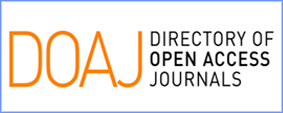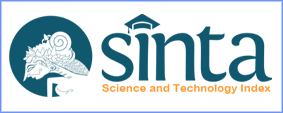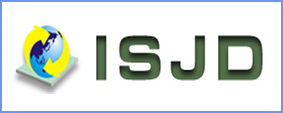The Effect of Emotional Intelligence and Self Effycacy Towards Students Achievement
Abstract
Keywords
Full Text:
PDFReferences
Ardyanti, S. I., & Harini, E. (2015). Hubungan Antara Adversity Quotient, Self Efficacy dan Kebiasaan Belajar dengan Prestasi Belajar Matematika Siswa Kelas X Kecantikan SMK. UNION: Jurnal Pendidikan Matematika, 3(1), 296–297.
Bagaka’s, J. G. (2011). The role of teacher characteristics and practices on upper secondary school students’ mathematics self-efficacy in Nyanza province of Kenya: A multilevel analysis. International Journal of Science and Mathematics Education, 9(4), 817–842. https://doi.org/10.1007/s10763-010-9226-3
Bursal, M. (2010). Turkish Preservice Elementary Teachers’ Self-Efficacy Beliefs Regarding Mathematics and Science Teaching. International Journal of Science and Mathematics Education, 8(4), 649–666. https://doi.org/10.1007/s10763-009-9179-6
Daud, F. (2012). Pengaruh Kecerdasan Emosional (EQ) Dan Motivasi Belajar Terhadap Hasil Belajar Biologi Siswa SMA 3 Negeri Kota Palopo. Jurnal Pendidikan Dan Pembelajaran Universitas Negeri Malang, 19(2), 243–255.
Febrianti, L., & Rachmawati, L. (2018). Pengaruh Kecerdasan Emosional dan Disiplin Belajar terhadap Hasil Belajar Siswa di SMA Negeri 3 Nganjuk. Jurnal Pendidikan Ekonomi (JUPE), 6(2), 69–75.
Goleman, D. (2015). Emotional Intelligence (Kecerdasan Emosional). Jakarta: PT Gramedia Pustaka Utama.
Hamdi, S., & Abadi, A. M. (2014). Pengaruh Motivasi, Self-Efficacy dan Latar Belakang Pendidikan terhadap Prestasi Matematika Mahasiswa PGSD STKIP-H dan PGMI IAJH. Jurnal Riset Pendidikan Matematika, 55(2), 77–87.
Hendriana, H., Rohaeti, E., E., & Sumarmo, U. (2017). Hard Skills dan Soft Skills Matematika Siswa. Bandung: PT Refika Aditama.
Huang, X., Zhang, J., & Hudson, L. (2018). Impact of math self-efficacy, math anxiety, and growth mindset on math and science career interest for middle school students: the gender moderating effect. European Journal of Psychology of Education, 621–640. https://doi.org/10.1007/s10212-018-0403-z
Lee, C. W., Walkowiak, T. A., & Nietfeld, J. L. (2017). Characterization of mathematics instructional practises for prospective elementary teachers with varying levels of self-efficacy in classroom management and mathematics teaching. Mathematics Education Research Journal, 29(1), 45–72. https://doi.org/10.1007/s13394-016-0185-z
Louis, R. A., & Mistele, J. M. (2012). the Differences in Scores and Self-Efficacy By Student Gender in Mathematics and Science. International Journal of Science and Mathematics Education, 10(5), 1163–1190. https://doi.org/10.1007/s10763-011-9325-9
Maharani, S., Nusantara, T., Rahman, A., & Qohar, A. (2019). Analyticity and Systematicity Students of Mathematics Education on Solving Non-routine Problems. Mathematics and Statistics, 7(2), 50–55. https://doi.org/10.13189/ms.2019.070204
Maltby, J., Day, L., & Macaskill, A. (2010). Personality, individual differences and intelligence. London: Pearson.
Mohzan, M. A. M., Hassan, N., & Halil, N. A. (2013). The Influence of Emotional Intelligence on Academic Achievement. Procedia - Social and Behavioral Sciences, 90(InCULT 2012), 303–312. https://doi.org/10.1016/j.sbspro.2013.07.095
Ngu, L., Hanafi, Z., Taslikhan, M., & Raman, A. (2016). Influence of emotional intelligence on students’ academic achievements. International Journal of Humanities and Social Science Research, 2(3), 41–46.
Nurdiansyah, E. (2016). Pengaruh Kecerdasan Spiritual, Kecerdasan Emosional, Dampak Negatif Jejaring Sosial Dan Kemampuan Berpikir Divergen Terhadap Hasil Belajar Matematika Siswa. Journal of Educational Science and Technology (EST), 2(3), 171–184. https://doi.org/10.26858/est.v2i3.3216
Safaria, A. A. T. (2013). Effects of Self-Efficacy on Students’ Academic Performance. Journal of Educational, Health and Community Psychology, 2(1), 22–29. https://doi.org/10.12928jehcp.v2i1.3740
Salami, S. ., & Ogundokun, M. . (2009). Emotional intelligence and academic self-efficacy as predictors of academic performance among senior secondary school students in Oyo state, Nigeria. Perspectives in Education, 25(3), 175–185.
Slameto, S. (2015). Belajar dan Faktor-Faktor yang Mempengaruhinya. Jakarta: Rineka Cipta.
Thaib, E. N. (2013). Hubungan Antara Prestasi Belajar dengan Kecerdasan Emosional. Jurnal Ilmiah Didaktika, 13(2), 384–399. Retrieved from http;//.id/index.php/didaktika/article/view/485
Wong, C., Law, K. S., & Wong, P. (2002). Development and validation of a non-self-report emotional intelligence measure in Hong Kong. Asian Academy of Management Conference, 535–559. https://doi.org/10.1023/B:APJM.0000048717.31261.d0
Article Metrics
Abstract has been read : 3198 timesPDF file viewed/downloaded: 0 times
DOI: http://doi.org/10.25273/jipm.v8i1.4669
Refbacks
- There are currently no refbacks.
Copyright (c) 2019 JIPM (Jurnal Ilmiah Pendidikan Matematika)

This work is licensed under a Creative Commons Attribution-ShareAlike 4.0 International License.
View JIPM Stats
JIPM indexed by:
Copyright of JIPM (Jurnal Ilmiah Pendidikan Matematika) ISSN 2502-1745 (Online) and ISSN 2301-7929 (Print)













